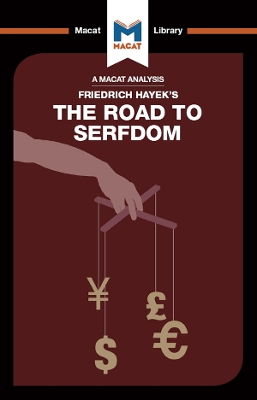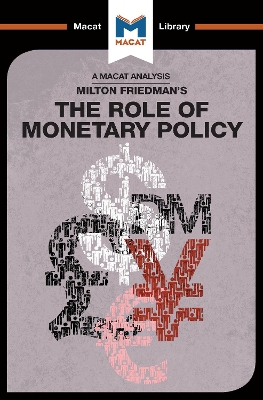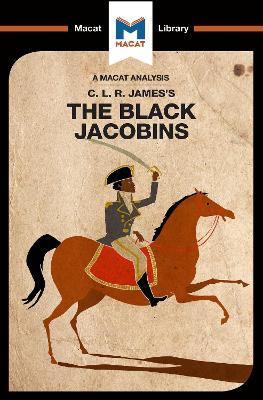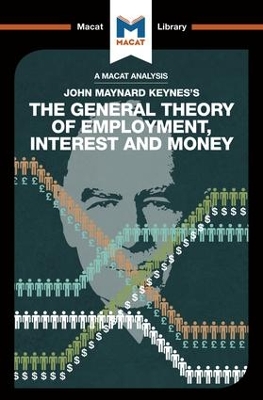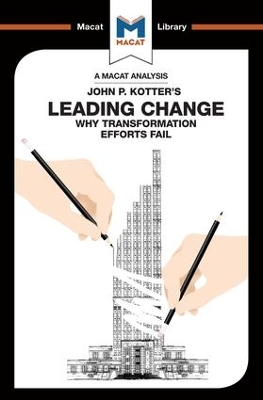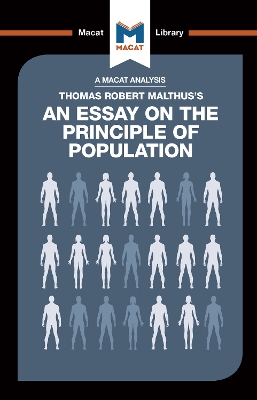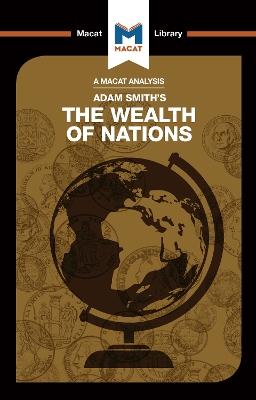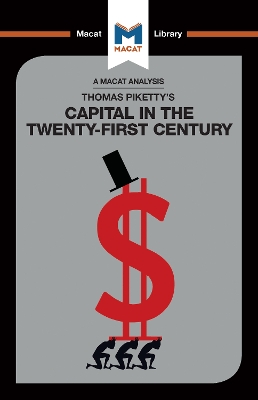The Macat Library
18 total works
An Analysis of Amartya Sen's Development as Freedom
by Janna Miletzki and Nick Broten
Amartya Sen uses his 1999 work Development as Freedom to evaluate the processes and outcomes of economic development.
Having come to the conclusion that development is best summed up as the expansion of freedom, Sen examines traditional definitions and understandings of the term. He says people tend to think of freedoms as economic (the freedom to enter into market exchanges) or political (the freedom to vote and be an active citizen), and tries to understand why the definition has been so narrow hitherto. He concludes that an evaluation of true freedom must necessarily include the freedom to access social services such as healthcare, sanitation and nutrition, just as much as it must acknowledge economic and political freedoms.
Evaluating the relevance of the current thinking behind development, Sen concludes that the term ‘freedom’ cannot simply be about income. In many ways, measuring income does not account for various “unfreedoms” (manmade or natural bars to wellbeing) that hinder development. Sen’s evaluation is all the more powerful for its clarity: "The freedom-centered perspective has a generic similarity to the common concern with "quality of life."
An Analysis of Friedrich Hayek's The Road to Serfdom
by David Linden and Nick Broten
Friedrich Hayek’s 1944 Road to Serfdom is a classic of conservative economic argument. While undeniably a product of a specific time in global politics – which saw the threat of fascism from Nazi Germany and its allies beguilingly answered by the promises of socialism – Hayek’s carefully constructed argument is a fine example of the importance of good reasoning in critical thinking.
Reasoning is the art of constructing good, persuasive arguments by organizing one’s thoughts, supporting one’s conclusions, and considering counter-arguments along the way. The Road to Serfdom illustrates all these skills in action; Hayek’s argument was that, while many assumed socialism to be the answer to totalitarian, fascist regimes, the opposite was true. Socialist government’s reliance on a large state, centralised control, and bureaucratic planning – he insisted – actually amounts to a different kind of totalitarianism.
Freedom of choice, Hayek continued, is a central requirement of individual freedom, and hence a centrally planned economy inevitably constrains freedom. Though many commentators have sought to counter Hayek’s arguments, his reasoning skills won over many of the politicians who have shaped the present day, most notably Margaret Thatcher and Ronald Reagan.
An Analysis of Milton Friedman's The Role of Monetary Policy
by Nick Broten and John Collins
Milton Friedman was one of the most influential economists of all time – and his ideas had a huge impact on the economic policies of governments across the world.
A key theorist of capitalism and its relationship to democratic freedoms, Friedman remains one of the most cited authorities in both academic economics and government economic policy. His work remains striking not just for its brilliant grasp of economic laws and realities, but also for its consistent application of high-level evaluation and reasoning skills to produce arguments that can convince experts and laypeople alike.
Friedman’s 1968 essay ‘The Role of Monetary Policy’ is a key example of how Friedman’s critical thinking skills helped to cement his influence and reputation. The paper addressed the question of how a government’s monetary policy affects the economy – from employment levels to inflation and so on. At its heart lies an evaluation and critique of the most widely accepted conception of monetary policy at the time – the ‘Phillips Curve’ – which argued that increased inflation leads naturally to increased employment. Systematically noting the flaws and weaknesses of the Phillips Curve theory, Friedman showed why this is not, in fact, the case. He then drew up a systematic alternative argument for what governmental monetary policy could and should aim to do.
Though economists now consider Friedman’s ideas to have considerable limitations, ‘The Role of Monetary Policy’ remains a masterclass in evaluating and countering faulty arguments.
Today we take it for granted that history is much more than the story of great men and the elites from which they spring. Other forms of history - the histories of gender, class, rebellion and nonconformity - add much-needed context and color to our understanding of the past. But this has not always been so. In CLR James's The Black Jacobins, we have one of the earliest, and most defining, examples of how 'history from below' ought to be written.
James's approach is based on his need to resolve two central problems: to understand why the Haitian slave revolt was the only example of a successful slave rebellion in history, and also to grasp the ways in which its history was intertwined with the history of the French Revolution. The book's originality, and its value, rests on its author's ability to ask and answer productive questions of this sort, and in the creativity with which he proved able to generate new hypotheses as a result. As any enduring work of history must be, The Black Jacobins is rooted in sound archival research - but its true greatness lies in the originality of James's approach.
An Analysis of John Maynard Keyne's The General Theory of Employment, Interest and Money
by John Collins
John Maynard Keynes’s 1936 General Theory of Employment, Interest and Money is a perfect example of the global power of critical thinking. A radical reconsideration of some of the founding principles and accepted axioms of classical economics at the time, it provoked a revolution in economic thought and government economic policies across the world. Unsurprisingly, Keynes’s closely argued refutation of the then accepted grounds of economics employs all the key critical thinking skills: analysing and evaluating the old theories and their weaknesses; interpreting and clarifying his own fundamental terms and ideas; problem solving; and using creative thinking to go beyond the old economic theories. Perhaps above all, however, the General Theory is a masterclass in problem solving.
Good problem solvers identify their problem, offer a methodology for solving it, and suggest solutions. For Keynes the problem was both real and theoretical: unemployment. A major issue for governments during the Great Depression, unemployment was also a problem for classical economics. In classical economics, theoretically, unemployment would always disappear. Keynes offered both an explanation of why this was not the case in practice, and a range of solutions that could be implemented through government monetary policy.
An Analysis of John P. Kotter's Leading Change
by Yaamina Salman and Nick Broten
John P. Kotter’s Leading Change: Why Transformation Efforts Fail is a classic of business literature, and an example of high-level analysis and evaluation.
In critical thinking, analysis is all about the sequence and features of arguments. When combined with evaluation of the strengths and weaknesses of an argument, it provides the perfect basis for understanding corporate strategies and direction. Kotter applied these skills to his own experiences of coaching large and small businesses through changes aimed at improving their performance.
At its heart, Kotter’s conclusion was simple: unsuccessful transformations usually result from poor management decisions. His view was that it was not enough for executives to have management skills. Strong leadership is required, together with a clear process that can be used by all kinds of companies and organizations, no matter what sector they are operating in.
Looking at his own successes and failures alike, Kotter used his analytical skills to understand the sequence and features of relevant arguments before evaluating their strengths and distilling them down to identify common mistakes managers make when they try to implement change. This practical application of two core critical thinking skills allowed him to develop an eight-stage model for successful organizational transformation – a model still widely used twenty years on.
An Analysis of Thomas Robert Malthus's An Essay on the Principle of Population
by Nick Broten
Thomas Robert Malthus' 1798 Essay on the Principle of Population helped change the direction of economics, politics, and the natural sciences with its reasoning and problem solving.
The central topic of the essay was the idea, extremely prevalent in the 18th and 19th centuries, that human society was in some way perfectible. According to many thinkers of the time, mankind was on a course of steady improvement with advances set to continuously improve society and life for all. Malthus was a skeptic on this point, and, in a clear example of the skill of reasoning, set about constructing and marshalling a strong argument for a less optimistic view.
Central to his argument were the laws of population growth and their relationship to growth in agricultural production; in his view the former would always outstrip the latter. This provided a strong argument that society was limited by finite resources - a closely reasoned argument that continues to influence economists, politicians and scientists today, as well as environmental movements. While Malthus' proposed solutions have been less influential, they remain an excellent example of problem solving, offering a range of answers to the problem of population growth and finite resources.
Adam Smith's 1776 Inquiry into The Nature and Causes of the Wealth of Nations - more often known simply as The Wealth of Nations - is one of the most important books in modern intellectual history.
Considered one of the fundamental works of classical economics, it is also a prime example of the enduring power of good reasoning, and the ability of reasoning to drive critical thinking forward. Adam Smith was attempting to answer two complex questions: where does a nation's wealth come from, and what can governments do to increase it most efficiently? At the time, perhaps the most widely accepted theory, mercantilism, argued that a nation's wealth was literally the amount of gold and silver it held in reserve. Smith, meanwhile, weighed the evidence and came to a different conclusion: a nation's wealth, he argued, lay in its ability to encourage economic activity, largely without government interference.
Underlying this radical redefinition was the revolutionary concept that powered Smith's reasoning and which continues to exert a vast influence on economic thought: the idea that markets are self-regulating. Pitting his arguments against those of his predecessors, Smith carefully and persuasively reasoned out a strong case for free markets that reshaped government economic policies in the 19th-century and continues to shape global prosperity today.
An Analysis of Thomas Piketty's Capital in the Twenty-First Century
by Nick Broten
Thomas Piketty is a fine example of an evaluative thinker. In Capital in the Twenty-First Century, he not only provides detailed and sustained explanations of why he sees existing arguments relating to income and wealth distribution as flawed, but also gives us very detailed evaluations of the significance of a vast amount of data explaining why incomes is distributed in the ways it is.
As Piketty stresses, “the distribution question… deserves to be studied in a systematic and methodical fashion.” This stress on evaluating the significance of data leads him to focus on the central evaluative questions, and look in turn at the acceptability, relevance, and adequacy of existing justifications for the unequal distribution of wealth. In doing so, Piketty applies his understanding of the data to answering the deeply important question of what political structures and what policies are necessary to move us towards a more equal society.
Piketty’s evaluation of the data supports his argument that inequality cannot be depended on to reduce over time: indeed, without government intervention, it is highly likely to increase. In addition, he evaluates international data to argue that poor countries do not necessarily become less poor as a result of foreign investment. This strong emphasis on the interrogation of data, rather than building mathematical models that are divorced from data, is a defining feature of Piketty’s work.
Friedrich Hayek's 1944 Road to Serfdom is a classic of conservative economic argument. While undeniably a product of a specific time in global politics - which saw the threat of fascism from Nazi Germany and its allies beguilingly answered by the promises of socialism - Hayek's carefully constructed argument is a fine example of the importance of good reasoning in critical thinking.
Reasoning is the art of constructing good, persuasive arguments by organizing one's thoughts, supporting one's conclusions, and considering counter-arguments along the way. The Road to Serfdom illustrates all these skills in action; Hayek's argument was that, while many assumed socialism to be the answer to totalitarian, fascist regimes, the opposite was true. Socialist government's reliance on a large state, centralised control, and bureaucratic planning - he insisted - actually amounts to a different kind of totalitarianism.
Freedom of choice, Hayek continued, is a central requirement of individual freedom, and hence a centrally planned economy inevitably constrains freedom. Though many commentators have sought to counter Hayek's arguments, his reasoning skills won over many of the politicians who have shaped the present day, most notably Margaret Thatcher and Ronald Reagan.

